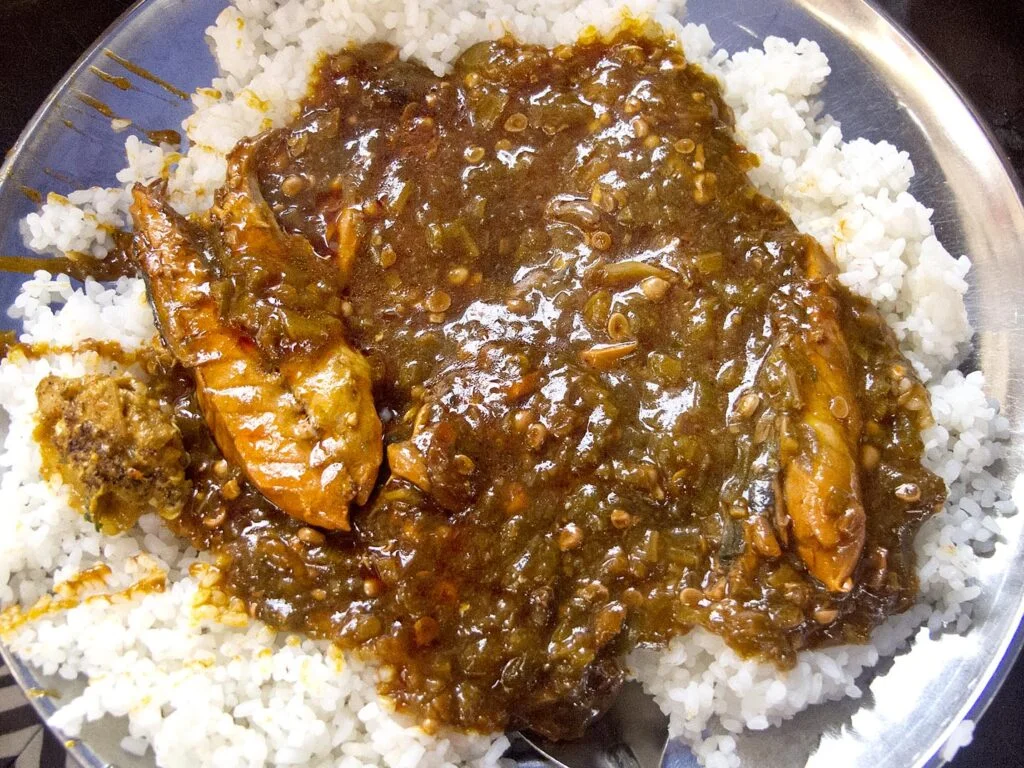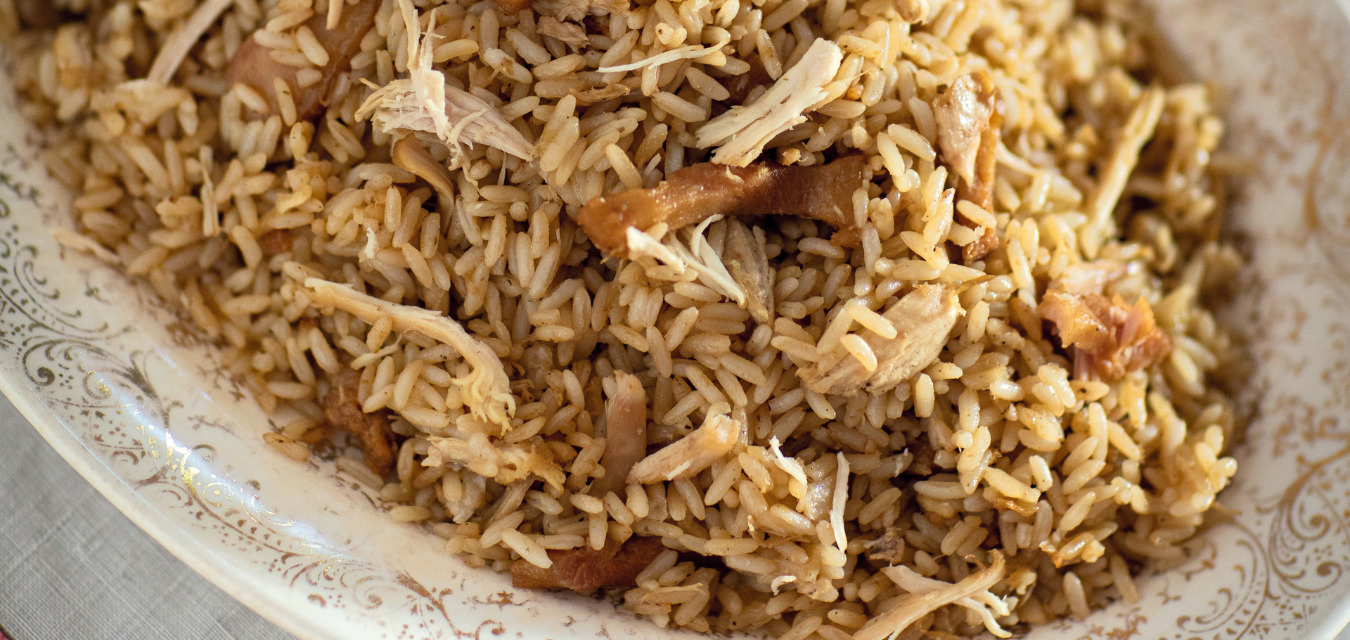I talk to Moustaph almost every day. He’s my Wolof tutor, based in Senegal. I’m in Savannah, Georgia. Our sessions are part language lesson, part cultural exchange, and part catching up between cousins—because that’s exactly what it feels like we are.
We always start with greetings, because in Senegalese culture, you just don’t skip over that, regardless how long it takes. (Back in the day, the South used to be like that too, but we getting too city-like these days). We also share what we ate that day, because he knows food is one of my passions.
This morning, Moustaph told me he had soupe kandja for dinner. The word “kandja” sounded familiar in my mouth, like something I’d heard before but couldn’t place. So I Googled it.
Turns out soupe kandja is basically okra soup but thicker.

Okra soup is one of those dishes that’s always been around me—in Louisiana, on the menus in the Low Country, in the pages of church cookbooks passed down over generations. I sent him a picture of what ours looks like.

He wrote back almost instantly: “That’s it.”
Just like that. Two continents, same pot.
Another day, I was working on an article about perloo: a one-pot rice dish we love down here. Depending on the house you’re in, it might have chicken, sausage, shrimp, or whatever you have on hand. It’s simple but so good.
I asked Moustaph if thieboudienne, my favorite meal in Senegal, was the closest match. That’s when I learned something new. “Thieb means rice,” he told me. “Thieboudienne is rice and fish. Thieb guinar is rice and chicken. Thieb yapp is rice and meat.” So a chicken perloo is a thieb guinar.
I dropped the surprised emoji in our chat. He asked, “What’s wrong?” I replied: “I’m surprised that so many of our foods are still African. Colonizers tried hard to take all of the Africa out of us, but they obviously could not.”
His response: “Absolutely. Ain’t no way.”
That last part made me laugh out loud. I got him sounding like a Black Southerner. I told him he used “ain’t” correctly, too. That led us down a whole other conversation about how we speak.
Every now and then, something reminds me just how much Africa is still in us—not just in our names and prayers, but in our plates and patterns, our idioms and instincts.
Okra didn’t cross the ocean by accident. Neither did our rice traditions. These foods were braided into the cultural memory we carried, even when our names were stripped and our tongues punished. They stayed with us, even when we forgot to call them by their first names.
Moustaph and I are 4,000 miles apart, but the recipes—and the language and laughter they come with—erase all that distance. It’s just more proof: We all cousins. Always have been.

Leave a Reply